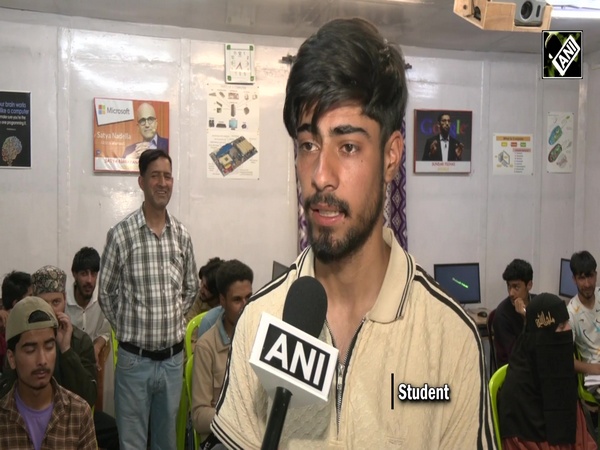Gwadar protests reflect power of popular non-violent movements against exploitative regimes: report
Dec 30, 2021

Gwadar [Pakistan], December 30 : The success of non-violent protests by the Gwadar Ko Huqooq Do Tehreek (Movement for Gwadar's rights) against Pakistani oppressive authority shows the vulnerability of Imran Khan's government.
Pakistan in general, and the province of Balochistan in particular, has been no stranger to demands by vast sections of its population for basic rights that have either been denied to them or snatched away from them. Too often for comfort, these demands have been staked through violent protests involving senseless loss of lives, according to European Foundation for South Asian Studies
Over the past month, however, a mass movement by the residents of Gwadar, the Pakistani port city that is a major hub of the China Pakistan Economic Corridor (CPEC), demonstrated how peaceful protest rallies by tens of thousands of wronged men, women and children could achieve so much more than resorting to violence could.
Balochistan is very important to both Pakistan and China because of its strategic position, natural resources and the China Pakistan Economic Corridor which ends in Gwadar and provides China access to the Arabian Sea and the Indian Ocean.
On the other hand, the second half of November Maulana Hidayat-ur-Rehman Baloch, a leader of a native fishing tribe, has been leading the largely local Gwadar Ko Huqooq Do Tehreek and staging massive rallies and sit-ins in various parts of the province's Makran division to press for the demands of Gwadar's residents who number about one hundred thousand.
Meanwhile, traders and businesspeople also joined the movement and complete shut-down strikes and blocking of national highways connecting Gwadar with the economic hub of Karachi complemented the rallies and sit-ins.
Also, the main demands of the movement included a ban on illegal trawling in the Arabian Sea, including massive Chinese fishing operations..
The protestors also demanded the removal of checkpoints erected for the security of Chinese nationals involved in CPEC projects and called for the provision of basic amenities like drinking water, health, education, and employment opportunities that have long been denied in Gwadar despite the billions of dollars that have been pumped into the Gwadar port and other related projects under the CPEC.
How the situation in Gwadar will play out and what implications that will have on the CPEC will be known in times to come, but what is already amply clear and what the Gwadar Ko Huqooq Do Tehreek has proved fairly comprehensively is that peaceful protest is still a potent tool, and that in Gwadar and other similarly suppressed places, lasting success and progress can only be achieved through taking the local population along, according to European Foundation for South Asian Studies. ( ANI)




















